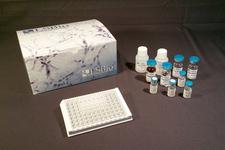order histories, retained contact details for faster checkout, review submissions, and special promotions.
Forgot password?
order histories, retained contact details for faster checkout, review submissions, and special promotions.
Locations
Orders Processing,
Shipping & Receiving,
Warehouse
2 Shaker Rd Suites
B001/B101
Shirley, MA 01464
Production Lab
Floor 6, Suite 620
20700 44th Avenue W
Lynnwood, WA 98036
Telephone Numbers
Tel: +1 (206) 374-1102
Fax: +1 (206) 577-4565
Contact Us
Additional Contact Details
order histories, retained contact details for faster checkout, review submissions, and special promotions.
Forgot password?
order histories, retained contact details for faster checkout, review submissions, and special promotions.
GIPR / GIP Receptor
gastric inhibitory polypeptide receptor
GIPR, or Gastric Inhibitory Polypeptide Receptor, mediates GIP-induced secretion of insulin by pancreatic islet beta cells after a meal. GIP is a gastrointestinal peptide hormone of 42 aa that is released from duodenal endocrine K cells after absorption of glucose or fat. Stimulation of the GIPR on pancreatic cells activates adenylyl cyclase and mitogen-activated protein kinase, resulting in increased insulin secretion. Mice with a targeted mutation of GIPR have higher blood glucose levels with impaired initial insulin response after oral glucose load. Analysis of GIPR knockout mice suggest that GIPR defects may contribute to the pathogenesis of diabetes and obesity. Ectopic expression of functional GIPR and its coupling to steroidogenesis has been suggested to be the main cause of food-dependent Cushing's syndrome. Two isoforms of GIPR are produced by alternative splicing.
| Gene Name: | gastric inhibitory polypeptide receptor |
| Family/Subfamily: | GPCR , Gastric inhibitory polypeptide |
| Synonyms: | GIPR, GIP receptor, PGQTL2, GIP-R |
| Target Sequences: | NM_000164 NP_000155.1 P48546 |
Publications (3)



If you do not find the reagent or information you require, please contact Customer.Support@LSBio.com to inquire about additional products in development.









